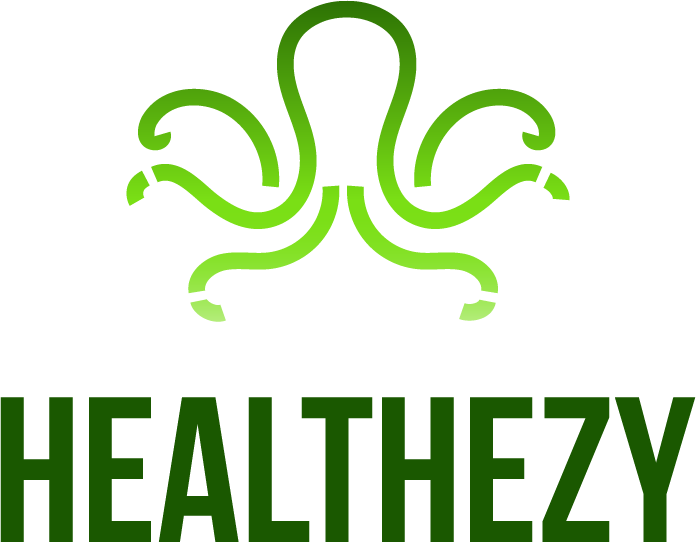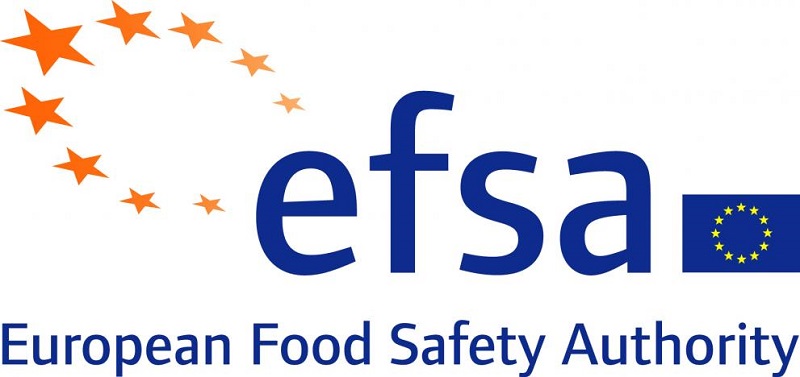Introduction to the European Commission
The European Commission is the executive branch of the European Union (EU). It is responsible for proposing legislation, implementing decisions, and managing the day-to-day operations of the EU.
The Commission is made up of one representative from each EU member state, who are appointed by their respective governments. The Commission’s main goal is to promote the general interest of the EU and ensure that its policies are implemented effectively.
It plays a crucial role in the governance of the EU and works closely with other EU institutions, such as the European Parliament and the Council of the EU.
Introduction to the European Food Safety Authority
The European Food Safety Authority (EFSA) is an independent agency of the European Union responsible for providing scientific advice and communication on food and feed safety. It was established in 2002 with the aim of ensuring a high level of protection of human health and consumers’ interests in relation to food and feed safety.
The EFSA plays a crucial role in risk assessment, risk communication, and risk management in the European Union, contributing to the development and implementation of food safety policies and regulations.
Through its scientific expertise and transparent processes, the EFSA supports evidence-based decision-making and promotes public trust in the safety of the food chain.
Importance of the European Commission and European Food Safety Authority
The European Commission and the European Food Safety Authority play a crucial role in ensuring the safety and quality of food in the European Union. The European Commission is responsible for setting policies and regulations related to food safety.
While the European Food Safety Authority provides scientific advice and conducts risk assessments. Together, they work to protect consumers from potential health risks and maintain high standards of food safety.
The importance of the European Commission and the European Food Safety Authority cannot be overstated, as they play a vital role in safeguarding public health and maintaining consumer confidence in the food supply chain.
Roles and Responsibilities
European Commission’s role in food safety
The European Commission plays a crucial role in ensuring food safety within the European Union. As the executive body of the EU, it is responsible for developing and implementing policies and regulations related to food safety.
The Commission works closely with the European Food Safety Authority (EFSA) to assess and manage risks associated with food production, distribution, and consumption. Through its various departments and agencies, the Commission conducts inspections, monitors food-related incidents, and coordinates emergency response measures.
Additionally, the Commission collaborates with member states to harmonize food safety standards and promote effective communication and cooperation among all stakeholders.
Overall, the European Commission’s role in food safety is to safeguard public health and maintain consumer confidence in the safety and quality of food products in the EU.
European Food Safety Authority’s role in food safety
The European Food Safety Authority (EFSA) plays a crucial role in ensuring food safety within the European Union. As an independent agency, EFSA provides scientific advice and risk assessment to inform policy decisions and protect consumers from potential health risks associated with the food chain.
EFSA’s main responsibilities include evaluating the safety of food additives, assessing the risks of pesticides, and providing guidance on food labeling and nutrition.
By conducting thorough scientific assessments, EFSA contributes to maintaining high standards of food safety and enhancing public health across Europe.
Collaboration between the European Commission and European Food Safety Authority
The collaboration between the European Commission and the European Food Safety Authority (EFSA) plays a crucial role in ensuring food safety and protecting public health in the European Union.
The European Commission, as the executive body of the EU, works closely with EFSA, an independent scientific agency, to develop and implement regulations and policies related to food safety. This collaboration involves sharing scientific expertise, conducting risk assessments, and providing scientific advice to inform decision-making.
By working together, the European Commission and EFSA contribute to maintaining high standards of food safety and consumer protection across Europe.
Regulatory Framework
Legislation and regulations governing food safety in the EU
The legislation and regulations governing food safety in the EU play a crucial role in ensuring the protection of consumers. The European Commission and the European Food Safety Authority (EFSA) work together to establish and enforce these measures.
The EU has implemented a comprehensive framework that covers various aspects of food safety, including hygiene standards, labeling requirements, and the control of contaminants. This framework aims to guarantee the safety and quality of food products throughout the entire supply chain, from production to consumption.
By setting strict standards and conducting regular inspections, the EU ensures that food businesses comply with the regulations and maintain high levels of food safety. Additionally, the EU continuously monitors scientific developments and conducts risk assessments to identify emerging food safety issues and take appropriate actions.
Overall, the legislation and regulations governing food safety in the EU are designed to safeguard the health and well-being of European consumers.
Role of the European Commission in developing and implementing food safety regulations
The European Commission plays a crucial role in developing and implementing food safety regulations in Europe. As the executive branch of the European Union, the Commission is responsible for proposing new legislation and ensuring its enforcement.
In the area of food safety, the Commission works closely with the European Food Safety Authority (EFSA) to assess risks, provide scientific advice, and establish guidelines for food safety standards. The Commission also monitors compliance with these standards and takes appropriate measures to address any breaches or emerging risks.
Through its regulatory efforts, the European Commission aims to protect the health and well-being of consumers, promote fair trade practices, and maintain high standards of food safety across the European Union.
Role of the European Food Safety Authority in providing scientific advice for regulations
The European Food Safety Authority (EFSA) plays a crucial role in providing scientific advice for regulations in the European Union. As an independent agency, EFSA evaluates scientific data and conducts risk assessments to ensure the safety of food and feed within the EU.
Its main objective is to protect consumers from potential risks associated with the food chain and to promote public health. EFSA’s scientific advice is used by the European Commission to develop and implement regulations that safeguard the quality and safety of food products available in the EU market.
By relying on EFSA’s expertise, the European Commission can make informed decisions based on sound scientific evidence, ensuring the highest standards of food safety for European citizens.
Risk Assessment and Management
Process of risk assessment in the European Commission and European Food Safety Authority
The process of risk assessment in the European Commission and European Food Safety Authority involves a systematic and rigorous approach to evaluating potential risks to human health and the environment.
This process starts with the identification of hazards and the collection of relevant data. Next, the risks associated with these hazards are assessed, taking into account factors such as exposure levels and the vulnerability of different populations.
The assessment is then used to inform decision-making and the development of risk management strategies. Throughout the process, there is a strong emphasis on transparency, scientific integrity, and stakeholder engagement to ensure that the assessment is robust and reliable.
Overall, the process of risk assessment in the European Commission and European Food Safety Authority plays a crucial role in safeguarding public health and ensuring the safety of food and feed within the European Union.
Risk management strategies employed by the European Commission and European Food Safety Authority
The European Commission and the European Food Safety Authority (EFSA) employ various risk management strategies to ensure the safety of food in Europe. These strategies include setting maximum residue levels for pesticides, conducting risk assessments for food additives, and implementing regulations to control the use of genetically modified organisms.
Additionally, the European Commission and EFSA collaborate with member states and international organizations to exchange information and coordinate efforts in risk management.
By employing these strategies, the European Commission and EFSA aim to protect consumers and maintain high standards of food safety in Europe.
Communication of risks to the public and stakeholders
The Communication of risks to the public and stakeholders is an important aspect of the work carried out by the European Commission and the European Food Safety Authority. It is crucial to ensure that accurate and timely information regarding potential risks associated with food safety is effectively communicated to the public and relevant stakeholders.
This helps to promote transparency, trust, and informed decision-making. The European Commission and the European Food Safety Authority employ various communication channels, such as websites, social media, and press releases, to disseminate information and engage with the public and stakeholders.
Additionally, they collaborate with national authorities and international organizations to enhance risk communication and harmonize approaches.
By prioritizing effective risk communication, the European Commission and the European Food Safety Authority contribute to safeguarding public health and ensuring the safety of the European food supply.
Conclusion
Achievements of the European Commission and European Food Safety Authority
The European Commission and the European Food Safety Authority have achieved significant milestones in ensuring the safety and quality of food within the European Union. Through their collaborative efforts, they have implemented robust regulations and standards that protect consumers from potential health risks associated with food consumption.
The European Commission has played a crucial role in setting policies and guidelines, while the European Food Safety Authority has provided scientific expertise and conducted thorough risk assessments to support evidence-based decision-making.
Together, they have successfully addressed emerging food safety challenges, such as the regulation of genetically modified organisms and the control of chemical contaminants.
Their achievements have not only safeguarded public health but also fostered trust among European citizens in the safety of the food they consume.
Challenges faced by the European Commission and European Food Safety Authority
The European Commission and European Food Safety Authority face several challenges in their mission to ensure food safety in Europe. One of the key challenges is the increasing complexity of the food supply chain, which makes it difficult to trace and monitor potential risks.
Additionally, the rapid globalization of the food industry has led to the need for harmonized regulations and standards across different countries, posing a challenge for the Commission and Authority.
Moreover, emerging food safety issues, such as the use of new technologies in food production and the rise of food fraud, require continuous monitoring and adaptation of regulations. Lastly, the Commission and Authority also face the challenge of maintaining public trust and confidence in their work, as any lapses in food safety can have significant health and economic consequences.
Despite these challenges, the European Commission and European Food Safety Authority are committed to ensuring the highest standards of food safety for the citizens of Europe.
Future prospects and developments
The future prospects and developments of the European Commission and the European Food Safety Authority are promising. With the increasing focus on food safety and regulations, both organizations are expected to play a crucial role in ensuring the safety and quality of food products in the European Union.
The European Commission will continue to develop and implement policies that promote food safety and consumer protection, while the European Food Safety Authority will provide scientific advice and support to inform these policies.
Together, they will work towards improving food safety standards, enhancing risk assessment methodologies, and strengthening cooperation with international partners. As technology advances, both organizations will also need to adapt and embrace digital solutions to effectively address emerging challenges and ensure the safety of the European food supply chain.
Overall, the future looks bright for the European Commission and the European Food Safety Authority as they continue to safeguard the health and well-being of European consumers.







